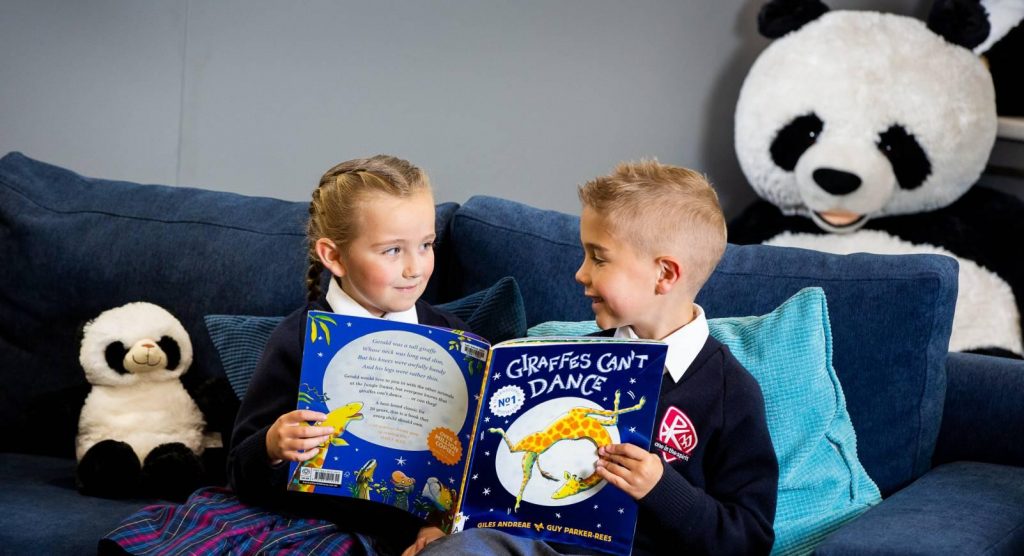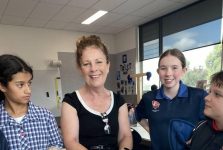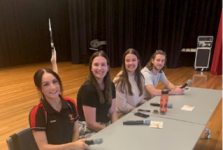
Book Club orders have been placed for the most recent issues and hopefully will arrive before the end of the term for distribution to students who have made purchases. Thank you to those that have. Not only will it allow you to continue to foster your child’s love of reading, it will also help our school gain points which can be used to purchase more books for all students to read and enjoy.
Whilst Book Club titles are predominantly picked out for Junior School students in the catalogue, there are often some books that appeal to our Secondary School students as well. As such, if your Secondary School child would like to browse the catalogue or purchase any books, please let them know to come into the library and ask about the current Book Club issue. They can also view the brochure online. Purchases can then be made online under the student’s name and in the class called Senior School. When the purchases arrive at school we will ensure that they are delivered to your child to take home and enjoy.
As always, we are happy to answer any questions you may have by sending an email to library@caseygrammar.vic.edu.au or by calling the school reception and they can direct your call to the library.
Reading Zone
Do you have a reading zone in your home — an area that feels comfortable and inviting for you and your children to curl up with a book? Some houses are lucky enough to have a dedicated library or reading room. Others opt for a bean bag in a corner or a teepee. For many, this area is their bed, piling pillows to make the space cozy and get some reading in.
Thinking about where you and your child may like to read can help foster more frequent reading sessions if they start to associate that space with reading. It should be a space without digital or noisy distractions. No matter the age, pillow forts are always a winner. As children grow (especially in high school), some don’t want to read out loud as often. Bedtime routines change. You may both sit together for 20 minutes reading your own books, but in a shared space, making this still a time for bonding.
However, have you asked your child recently if they still want to be read to? Sometimes we make assumptions that once our child can read to themselves that they don’t want their parents or carers to read out loud to them anymore. Many older children still enjoy this, but it happens less and less as they get older. Perhaps you could enjoy a book together like you did when they were younger, or share one of your favourite books from your childhood with them reading a few chapters a night. If not, all members of the household modelling reading habits at home can help encourage children to read more frequently.
Here is some inspiration if you would like to design your own reading room.
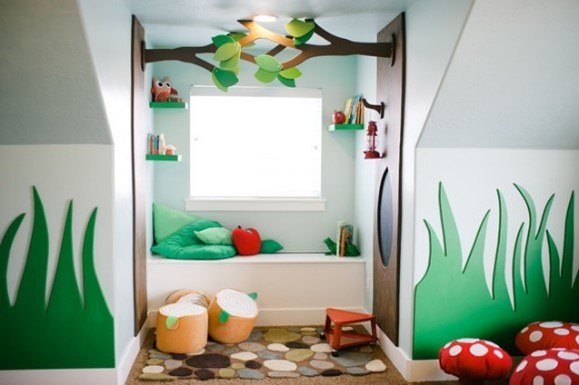
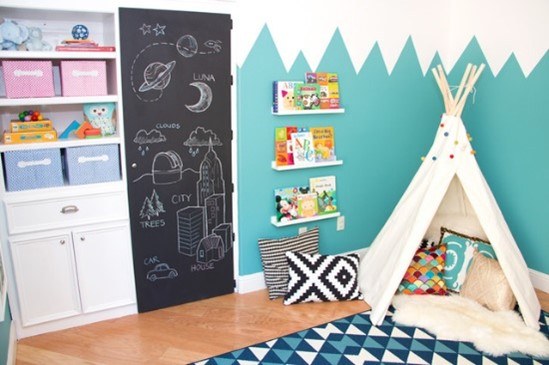
https://www.houzz.in/magazine/10-of-the-best-designed-reading-zones-for-kids-stsetivw-vs~81019562
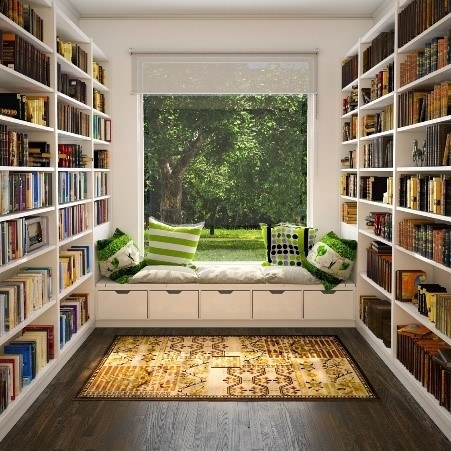
http://www.home-designing.com/best-cozy-reading-nooks-for-home
We try to foster a love of reading throughout the school years: We deliver specialist library classes in Foundation – Year 2; many teachers book their classes in for library sessions with a teacher-librarian in grades 3 –6; English classes are held once a fortnight in the library for all years 7 –9 classes; and there is reading promotion in years 10 –12. We expose students as often as possible to the range of books available at school and explain how it will continue to help them in the years to come by reading consistently, and selecting books that are both interesting and challenging.
Students are guided through the process of choosing a ‘good fit’ book and genres that may interest them. We have the time for students to engage in reading within the library sessions as well as time to borrow a new selection of books to take home. However, this is only half the battle. The other is the idea that students must continue reading at home (between four to seven times a week) to truly reap the benefits. One of the best methods to encourage this is for others at home to also participate in this activity. Improved mental health, well-being and connections with those in your household might be benefits that help your child mirror your reading habits. Other positives include:
- Improving vocabulary and comprehension
- Increasing empathy
- Fluency in writing
- Reducing stress levels
- Preparing mind and body for rest or sleep
- Strengthening brain connections
- Can help fight Alzheimer’s disease and other signs of aging
- Increased lifespan (a study conducted by Yale University links reading novels to an increased lifespan of up to 23 months: https://www.betterreading.com.au/news/book-life/reading-the-secret-to-living-a-longer-life/)
Sometimes we just need inspiration to get started. A dedicated reading space or a specific time in our routine might be the key. Perhaps a conversation over dinner to ask what your child is currently reading will remind them that it can form part of their home activities as well. Conversations about books can be general to begin with and gradually become more involved as you all feel more comfortable talking about books. Some conversation starters might include:
- What are you reading at the moment?
- Can you recommend a book I might like to read?
- Is there a book that was so good you want to read it again?
- Do you have a book that you haven’t read that you might like to?
- Is there a character you feel a connection to?
- What’s a book you really didn’t enjoy? How far into it did you get?
- What do you think is better, audio books, ebooks or physical books?
- If you could be best friends with a fictional character, who would you choose?
- Is there somewhere you would like to travel because of a book you have read?
- Where do you like to read most? Can we design a reading space at home that you would enjoy using?
- If you could meet an author, who would you like to talk to?
- If the book you are reading was a movie, who would be your ideal cast?
Sometimes in our busy lives we forget about or feel guilty making time to do things we enjoy and know are good for us as adults. But if we can reshape things to focus on setting good examples for our children, knowing they will benefit too, hopefully we can feel better about setting aside 20 minutes a day to enjoy reading together, whether it’s the same book or your own novel.
If you would like to read more about the benefits of reading or be inspired to create a reading zone in your house, follow these links:
https://www.scholastic.com/content/dam/KFRR/PastReports/KFRR2015_5th.pdf
https://www.healthline.com/health/benefits-of-reading-books
https://www.pinterest.com.au/brainbalance/reading-book-nooks/book-nooks/
https://www.pinterest.com.au/craftyguides/reading-nook-for-teenager/
If you would like to contact the library, please feel free to email library@caseygrammar.vic.edu.au.
Happy reading!
Diana Thompson
Head of Joan Reid Resource Centre


 1168
1168